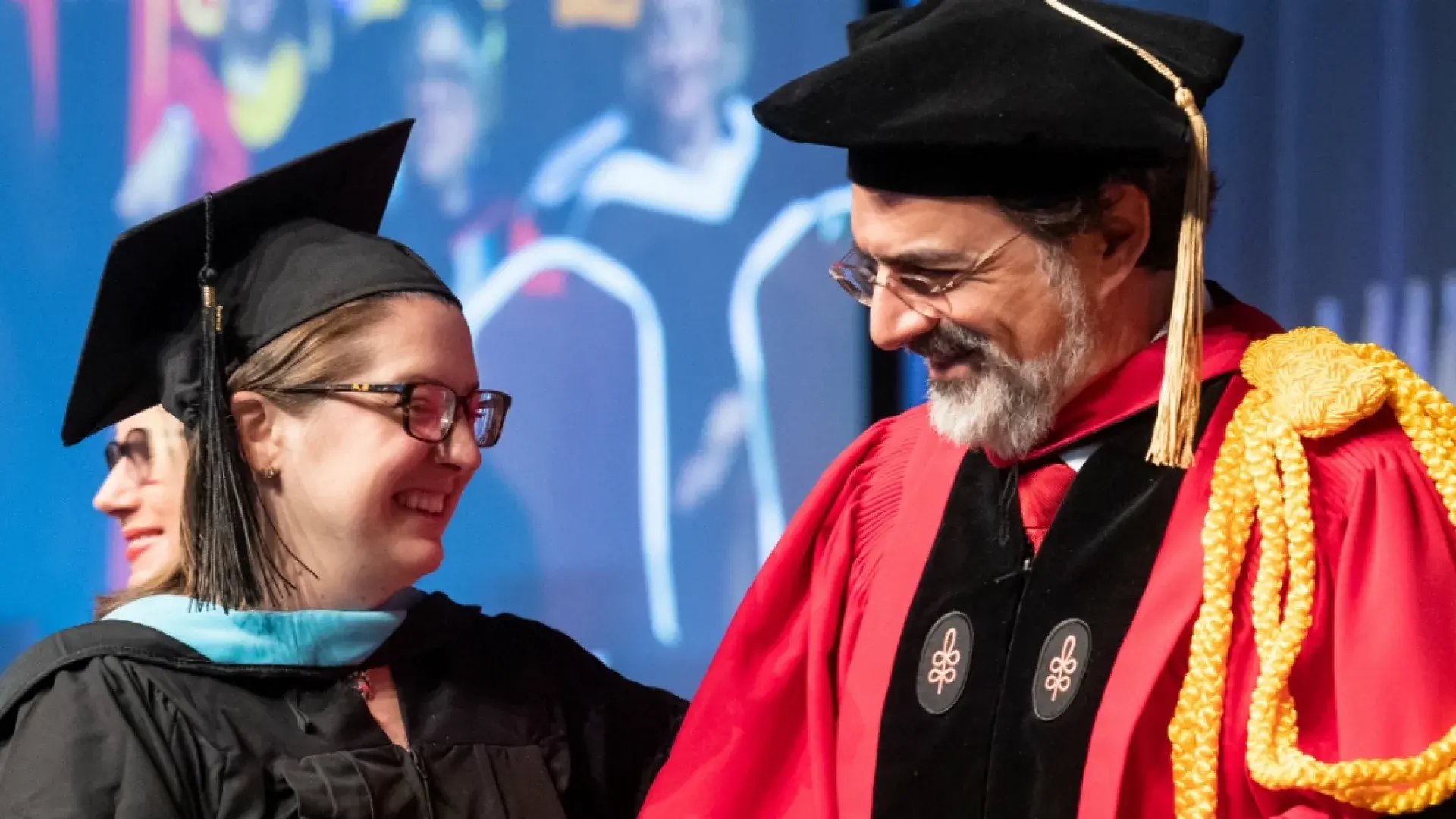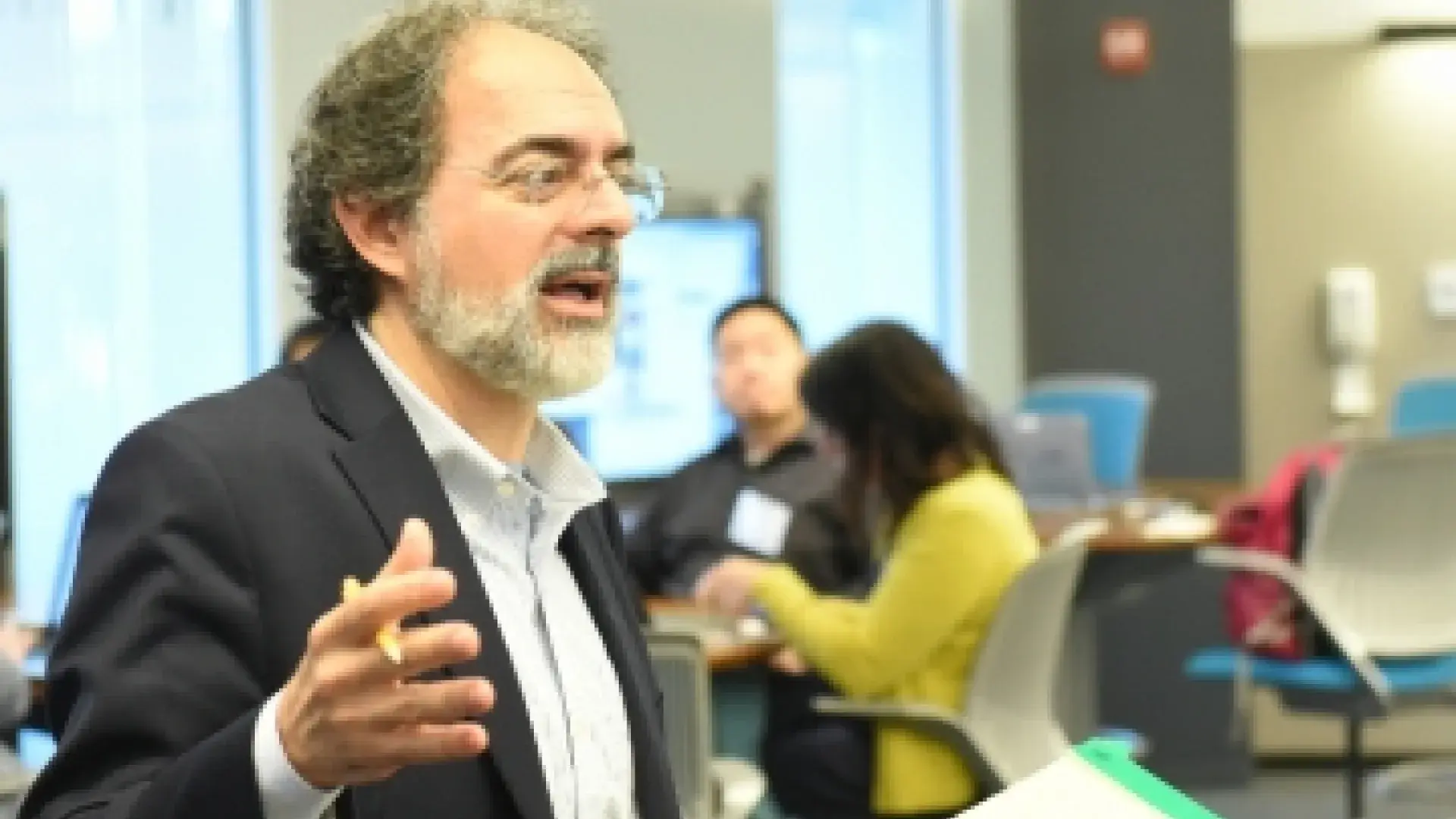
Chair Dr. Roger Edwards talks about how its PhD, master’s, and certificate offerings to train healthcare practitioners have become even more popular – and important – since the start of the pandemic.
It’s been a decade of dramatic growth for Health Professions Education at the MGH Institute.
Begun in 2011 with one full-time faculty and about a dozen students enrolled in one degree offering, it now has 20 full- and part-time faculty and approximately 100 people enrolled in certificate, masters, and PhD programs, the latter of which was launched in 2019. Because of that, it was reclassified in April as a department.
“The renaming reflects the growth, health, commitment to scholarship, and multi-program offerings that characterize this academic unit,” noted Provost Dr. Alex F. Johnson.
Specifically designed for educators in the health professions, its curricula are designed for physicians, nurses, physical and occupational therapists, and other health professionals who want to excel in educational leadership, research, innovation, curriculum design, program evaluation and learning outcomes assessment.
Dr. Roger Edwards, whose title was changed from director to chair as part of the reclassification, said the expansion has really taken off since the start of the pandemic in 2020. “Healthcare professionals became a focal point in our society in a way they never have been before because of the pandemic, so how they’re educated and trained also became much more important and prominent,” he said. “So much of education had to be moved to online platforms, and many people discovered that they needed to adapt to new learning models that support teaching remotely. The increase in the number of people enrolled in our courses is a recognition that we’re effectively providing people with those skills and contributing to best practices.”

